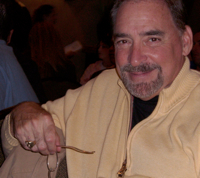For a local business, optimizing a web site to compete against your local, regional, national and international competitors can seem a bit daunting, to say the least.
Wouldn't it be great if your most valuable web traffic arrived at your site because they were looking for YOU and not your category? Trust me, it's great.
In your town, your name is your brand. It is built on only two variables:
Your reputation in the marketplace (built up by direct customer experience), and to a far lesser extent the anticipation of that experience that you PROMISED by your advertising.
Those who think that a brand is built solely on advertising and marketing are fools. In fact, the quickest way to go out of business is to promise a lot and then deliver a lousy experience. Your reputation will tank and your advertising will accelerate this process by getting even more people to try you. All of these people will be happy to tell others how bad you are.
If your advertising does a good job of creating enough interest, people will seek you out when they need or want your product or service. They are no longer doing this in a dead-tree phone book. They are doing it on line.
A new study released by the Radio Advertising Bureau has confirmed what I've been telling my clients for years; your best prospects will be those who search for you by name.
Simon Redican, managing director at the Radio Advertising Bureau, said: "The internet has become an incredibly important interface for customer marketing but the problem is that it also allows access to all your rival's brands which means the key challenge is to ensure that customers seek out your brand specifically – marketers are increasingly turning to offline media to direct consumers to their brands online."
The radio ads drove on average 34% of the total brand browsing for an average of 10% of the media budget which the research said means the radio spend was on average four times more effective.
Barber said the findings are highly significant for brands where the internet "provides the crucial final stage" of customer buying and radio advertising offers these brands the chance to "turbo charge" the marketing process.
Most of the Search Engine Optimization strategies have you believing that the only way to win is to dominate the keyword phrases of your industry or category. This is amazingly expensive for a small local business. And, the fight is never over because everyone is going after the same phrases.
On the other hand, moving your money out of print and yellow pages and into local radio, coupled with a convincing web site that is easily found on a search for your name offers a more lasting solution in the quest to establish your local brand.
How does this work out in real life? I just got off the phone with a retail client of mine who has been using this strategy for about 6 years. In his informal check of his competitors, most of their December sales were down as much as 20% over 2008. Anyone who did as well in 2009 as 2008 is very pleased. My client had an 11% increase in his December gross sales along with an 18% gain in gross profit, meaning he didn't give away the store to make the sales numbers. We are very pleased.
 Dennis Collins retired from a 42-year career in radio on October 6.
Dennis Collins retired from a 42-year career in radio on October 6.